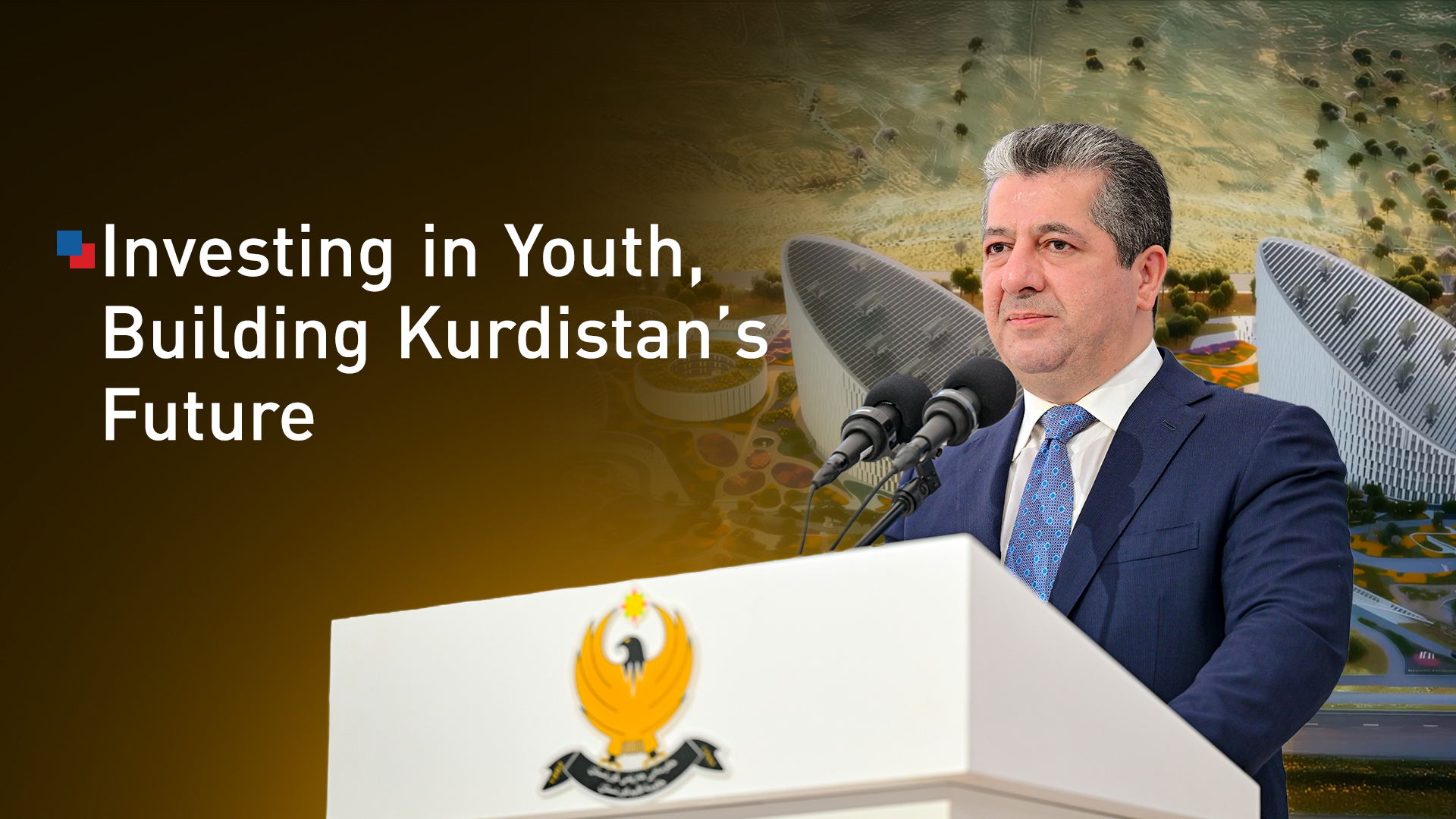PM Barzani: Investing in the Minds of Our Youth Is the Greatest Investment in Kurdistan’s Future
Kurdistan Region Prime Minister Masrour Barzani says the new KII Science Park in Erbil will serve as a national hub for research, creativity, and entrepreneurship, turning young innovators’ ideas into real-world projects.

ERBIL (Kurdistan24) — Kurdistan Region Prime Minister Masrour Barzani on Wednesday laid the cornerstone for the Kurdistan Innovation Institute’s (KII) Science Park in Erbil, marking what he described as “a new phase in investing in the ideas and talents of Kurdistan’s youth — the country’s greatest asset.”
Speaking at the ceremony, Barzani said he was proud to launch “a vital project that will serve the people of Kurdistan,” emphasizing that the science park will be a center where young innovators can transform their ideas into tangible projects.
“Three years ago, when we established the KII, we pledged to build a science park that would provide inventors with laboratories and facilities to test and develop their research in various fields,” Barzani said.
“Today, we are fulfilling that promise.”
The Prime Minister noted that the new science park would help drive economic growth, create job opportunities across different sectors, and harness the potential of talented Kurdish youth.
“We have many capable young people both inside and outside Kurdistan, but due to the lack of suitable opportunities and proper facilities, their talents have often gone underutilized,” he said.
Barzani urged innovators and experts from within and outside the Kurdistan Region to contribute to the park, turning it into a national center for creativity and research.
Quoting an old saying, he remarked, “Necessity is the mother of invention,” highlighting how innovation has historically driven progress and transformation.
He further stressed that in today’s world of rapid technological advancement and artificial intelligence, every idea needs a nurturing environment and institutional support to succeed.
“The Kurdistan Regional Government (KRG) fully supports scientific innovation, entrepreneurship, and the advancement of knowledge,” he reaffirmed.
While the KRG has allocated land for the project, Barzani clarified that it will be implemented by the private sector to ensure efficiency and sustainability.
“The idea behind the Science Park is to create a place where our youth can develop their ideas into real projects,” he said.
Reflecting on Kurdistan’s human capital, Barzani noted that many talented individuals have succeeded abroad because they found the right opportunities.
“We want Kurdistan to become a place where our youth can realize their dreams and turn their ideas into reality. That was our promise, and today we begin to make it real,” he said.
Concluding his speech, Barzani reaffirmed that the government will now focus on “investing in the minds and ideas of our youth,” calling them the nation’s “greatest wealth.”
He expressed strong optimism that the Science Park would become a landmark project for advancing Kurdistan’s development and empowering its new generation of innovators.
The Kurdistan Innovation Institute (KII), launched under Prime Minister Masrour Barzani’s initiative, aims to build a sustainable, knowledge-based economy in Kurdistan. It supports innovators, students, and researchers through training, funding, mentorship, and expert guidance in entrepreneurship and business development.
KII also promotes creativity through seminars and courses across schools and universities, maintaining full confidentiality under Non-Disclosure Agreements (NDAs) while guiding inventors from concept to completion.
With the launch of the Science Park, KII seeks to make Kurdistan a regional hub for technology and innovation, bringing together inventors, designers, and entrepreneurs to create solutions that benefit both the region and humanity.
The project aligns with the Kurdistan Regional Government’s (KRG) strategy to diversify the economy, drive digital transformation, and empower youth. It stands as a flagship initiative to boost education, attract private investment in research and technology, and generate new job opportunities across the Region.
Three years ago we launched @KurdInnovation, and I promised to build a space that will help innovators turn their ideas into real projects.
— Masrour Barzani (@masrourbarzani) October 15, 2025
Today, we laid the foundation for Science Park; a home for innovators to come together, and drive Kurdistan forward with their ideas. pic.twitter.com/qlaAgbWlHN